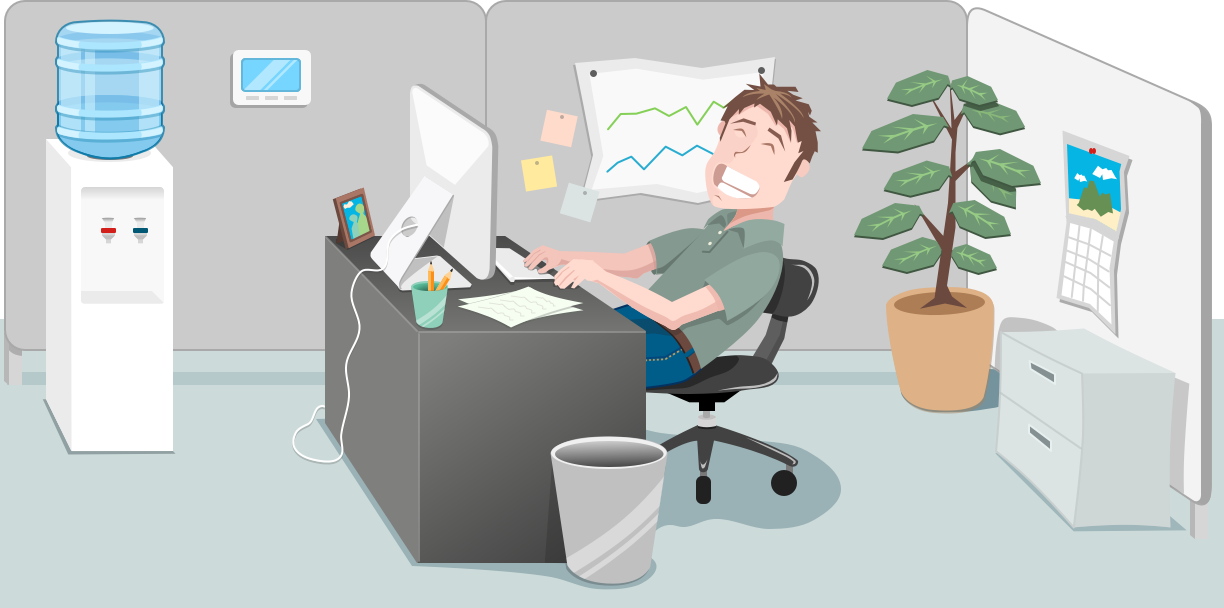
If you sit in the same place for eight hours a day, five days a week for work, then your surroundings better be conducive to comfort and productivity. While you probably have little control over the building and cubicle in which you work, there are positive changes within your control. Here are five ways to balance your physical and mental health at the office, ultimately making you more productive:
1. Workstation Modification
Your computer and chair are your two closest friends in your workspace, so you want them to be good ones. When real-life friends cause awkward moments with something they do or say, you let them know. Same here. Except you get to adjust the chair and computer to your liking, and to ergonomic standards.
Your chair should have a backrest that supports your lumbar, and adjustable height and arms. Your arms should be at a 90-degree angle when typing on the computer. At the same time, you should be sitting straight with feet flat on the floor. If your feet can’t be flat on the ground with the seat at the lowest position, use a footrest.
The distance you should have from your eyes to the computer screen is between 20 and 40 inches. And the top of the monitor should be at or slightly below eye level. The Occupational Safety & Health Administration offers many more tips to benefit your health at work.
2. Lighting Lift
According to a study by Mirjam Muench, natural light increases human productivity. So by simply replacing the fluorescent lights with full-spectrum lights, you can enhance your environment and your efficiency. That’s because full-spectrum lighting emits a natural, balanced spectrum of light that is the closest you can get to sunlight indoors. Based on years of study not only do they bring out true, vibrant colors but they can also ease eye fatigue, improve your mood, reduce stress hormone levels, slow aging of the retina, and reduce glare. While it may be difficult for maintenance to replace all the fluorescent tubes in the short run, in the long run the lighting will increase productivity, as well as reduce fatigue and stress. No one can argue with the advantages.
3. Warmer Ways
A Cornell study shows when temperatures were at a low 68 degrees, employees made 44 percent more mistakes than when temperatures were at the optimal 77 degrees. This workspace problem is more challenging if there’s a central air system for the whole building that can’t be easily adjusted. In this case, leave a sweater and blanket at work.
4. Go Green
By adding plants to your office or cubicle, you’ll reap both physical and psychological benefits. According to a study conducted in 2010, you’ll reduce anxiety by 37 percent; depression by 58 percent; anger by 44 percent; and fatigue by 38 percent.
5. Move to Music
Music in the workplace—whether from piped-in music, a desk radio, or iTunes on your headphones—has been shown to improve your mood, making it easier to complete tasks more quickly and come up with ideas.
The hardest part about improving your workspace is getting started. You’re busy, you might have to invest in a few things, and others may have to help. But once you’ve implemented these positive changes to your workstation, you’ll see the physical and mental health benefits immediately. Plus, your productivity will improve. What are you waiting for?
What are other ways you’ve improved your workspace? Leave us a comment below!

